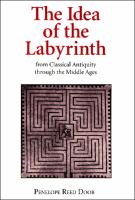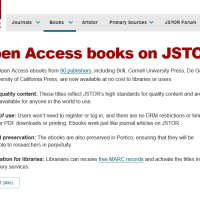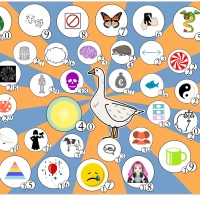
Sacred Books of the East, opera intrapresa da Friedrich Max Müller: collezione di traduzioni in lingua inglese di testi sacri dell’Oriente in 50 volumi, in tre serie (1875–94).
1. The Upanishads, Part 1 of 2. Chandogya Upanishad. Talavakara (Kena) Upanishad. Aitareya Upanishad. Kausitaki Upanishad. Vajasaneyi (Isa) Upanishad.
2. The Sacred Laws of the Aryas, vol. 1 of 2. The sacred laws of the Aryas as taught in the school of Apastamba, Gautama, Vâsishtha, and Baudhâyana. pt. I. Apastamba and Gautama. (The Dharma Sutras).
3. The Sacred Books of China, vol. 1 of 6. Part I of The Texts of Confucianism. The Shû king (Classic of History). The religions portions of the Shih king (Classic of Poetry). The Hsiâo king (Xiao Jing).
4. The Zend-Avesta, vol. 1 of 3. The Vendîdâd.
5. Pahlavi Texts, vol. 1 of 5. The Bundahis, Bahman Yast, and Shayast La-Shayast.
6. The Qur’an, vol. 1 of 2.
7. The Institutes of Visnu.
8. The Bhagavadgita With the Sanatsugâtiya and the Anugitâ.
9. The Qur’an, vol. 2 of 2.
10. The Dhammapada and The Sutta-Nipâta, a collection of discourses; being one of the canonical books of the Buddhists, translated from Pāli; and The Dhammapada, a collection of verses, translated from Pāli.
11. Buddhist Suttas. The Mahâ-parinibbâna Suttanta, The Dhamma-kakka-ppavattana Sutta, The Tevigga Sutta’anta, The Âkankheyya Sutta’a, The Ketokhila Sutta’a, The Mahâ-Sudassana Sutta’anta, The Sabbâsava Sutta’a.
12. The Satapatha Brahmana according to the text of the Mâdhyandina school, vol. 1 of 5.
13. Vinaya Texts, vol. 1 of 3. The Patimokkha. The Mahavagga, I-IV.
14. The Sacred Laws of the Aryas, vol. 2 of 2. The sacred laws of the Aryas as taught in the school of Apastamba, Gautama, Vâsishtha, and Baudhâyana. pt. II. Vâsishtha and Baudhâyana.
15. The Upanishads, part 2 of 2. Katha Upanishad. Mundaka Upanishad. Taittiriya Upanishad. Brhadaranyaka Upanishad. Svetasvatara Upanishad. Prasña Upanishad. Maitrayani Upanishad.
16. The Sacred Books of China, vol. 2 of 6. Part II of The Texts of Confucianism. The Yi King: (I Ching).
17. Vinaya Texts, vol. 2 of 3. The Mahavagga, V-X, the Kullavagga I-II.
18. Pahlavi Texts, vol. 2 of 5. The Dâdistân-î Dinik and the Epistles of Mânûskîhar.
19. The Fo-sho-hing-tsan-king, a life of Buddha, by Ashvaghosha, Bodhisattva; translated from Sanskrit into Chinese by Dharmaraksha, A. D. 420.
20. Vinaya Texts, vol. 3 of 3. The Kullavagga, IV-XII.
21. The Saddharma-Pundarika or The Lotus of the True Law.
22. Jaina Sûtras, vol. 1 of 2, translated from the Prâkrit. The Âkârânga sûtra. The Kalpa sûtra.
23. The Zend-Avesta, vol. 2 of 3. The Sîrôzahs, Yasts, and Nyâyis.
24. Pahlavi Texts, vol. 3 of 5. Dinai Mainög-i khirad, Sikand-Gümanik Vigar, Sad Dar.
25. The Laws of Manu. Translated, with extracts from seven commentaries.
26. The Satapatha Brahmana according to the text of the Mâdhyandina school, vol. 2 of 5, Books III-IV
27. The Sacred Books of China, vol. 3 of 6. Part III of the texts of Confucianism. The Lî Kî (Book of Rites), part 1 of 2.
28. The Sacred Books of China, vol. 4 of 6. Part IV of the texts of Confucianism. The Lî Kî (Book of Rites), part 2 of 2.
29. The Grihya-sutras; rules of Vedic domestic ceremonies. vol. 1 of 2. Sankhyayana-Grihya-sutra. Asvalayana-Grihya-sutra. Paraskara-Grihya-sutra. Khadia-Grihya-sutra.
30. The Grihya-sutras; rules of Vedic domestic ceremonies. vol. 2 of 2. Gobhila, Hiranyakesin, Apastamba (Olderberg); Yajña Paribhashasutras (Müller).
31. The Zend-Avesta, vol. 3 of 3. The Yasna, Visparad, Afrînagân, Gâhs, and miscellaneous fragments.
32. Vedic Hymns, vol. 1 of 2. Hymns to the Maruts, Rudra, Vâyu, and Vâta., with a bibliographical list of the more important publications on the Rig-veda.
33. The Minor Law-Books: Brihaspati. (Part 1 of 1).
34. The Vedanta-Sutras, vol. 1 of 3. Commentary by Sankaracharya, part 1 of 2. Adhyâya I-II (Pâda I-II).
35. The Questions of King Milinda, vol. 1 of 2. Milindapañha.
36. The Questions of King Milinda, vol. 2 of 2. Milindapañha.
37. Pahlavi Texts, vol. 4 of 5. Contents of the Nasks.
38. The Vedanta-Sutras, vol. 2 of 3, commentary by Sankaracharya, part 1 of 2. Adhyâya II (Pâda III-IV) -IV.
39. The Texts of Taoism, Part 1 of 2. The Sacred Books of China, vol. 5 of 6. Also: The Tâo the king (Tao te Ching): The writings of Kwang-tze, books I-XVII.
40. The Texts of Taoism, Part 2 of 2. Includes The Writings of Kwang Tse, books XVII-XXXIII, The Thâi-shang tractate of actions and their retributions, other Taoist texts, and the Index to vols. 39 and 40.
41. The Satapatha Brahmana according to the text of the Mâdhyandina school, vol. 3 of 5. Books V, VI, VII.
42. Hymns of the Atharvaveda, Together With Extracts From the Ritual Books and the Commentaries.
43. The Satapatha Brahmana according to the text of the Mâdhyandina school, vol. 4 of 5, Books VII, IX, X.
44. The Satapatha Brahmana according to the text of the Mâdhyandina school, vol. 5 of 5, Books XI, XII, XIII, XIV.
45. Jaina Sûtras, vol. 2 of 2, translated from Prâkrit. The Uttarâdhyayana Sûtra, The Sûtrakritânga Sûtra.
46. Vedic Hymns, vol. 2 of 2. Hymns to Agni (Mandalas I-V).
47. Pahlavi Texts, vol. 5 of 5. Marvels of Zoroastrianism.
48. The Vedanta-Sutras, vol. 3 of 3, with the commentary of Râmânuja.
49. Buddhist Mahâyâna Texts. Part 1. The Buddha-karita of Asvaghosha, translated from the Sanskrit by E. B. Cowell. Part 2. The larger Sukhâvatî-vyûha, the smaller Sukhâvatî-vyûha, the Vagrakkedikâ, the larger Pragñâ-pâramitâ-hridaya-sûtra, the smaller Pragñâ-pâramitâ-hridaya-sûtra, translated by F. Max Müller. The Amitâyur dhyâna-sûtra, translated by J. Takakusu.
50. General index to the names and subject-matter of the sacred books of the East.












fantastico, grazie